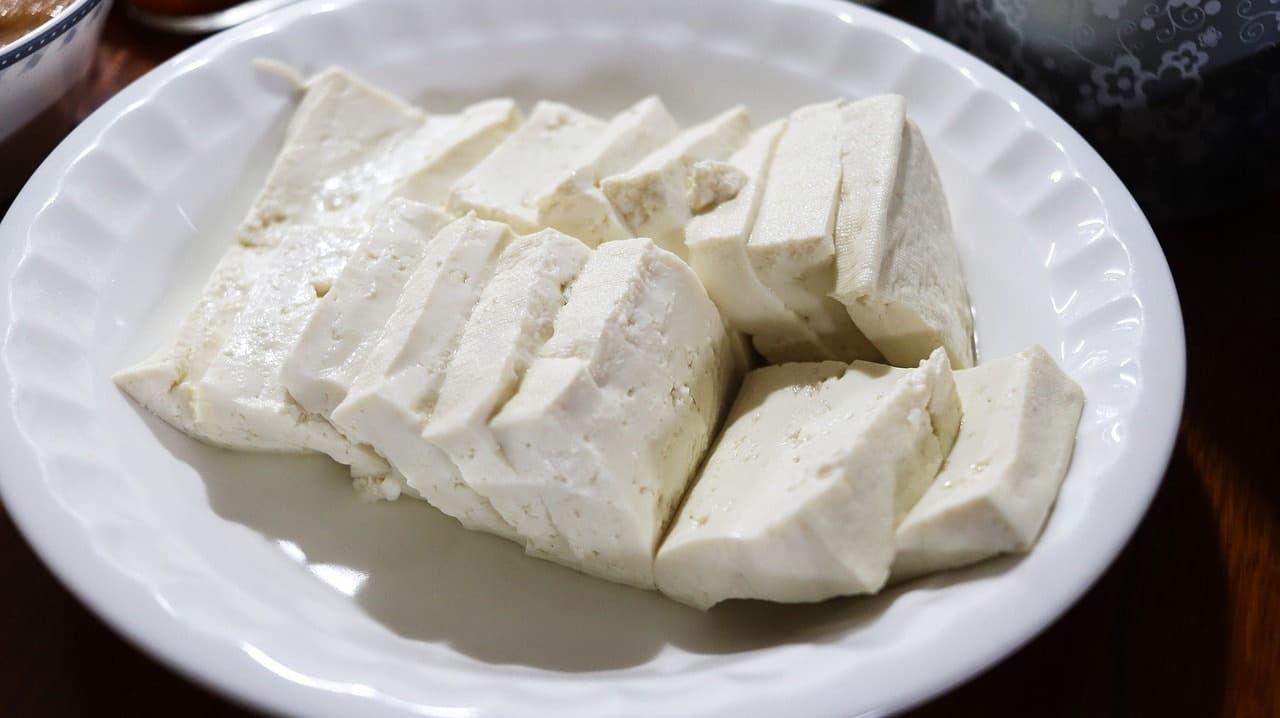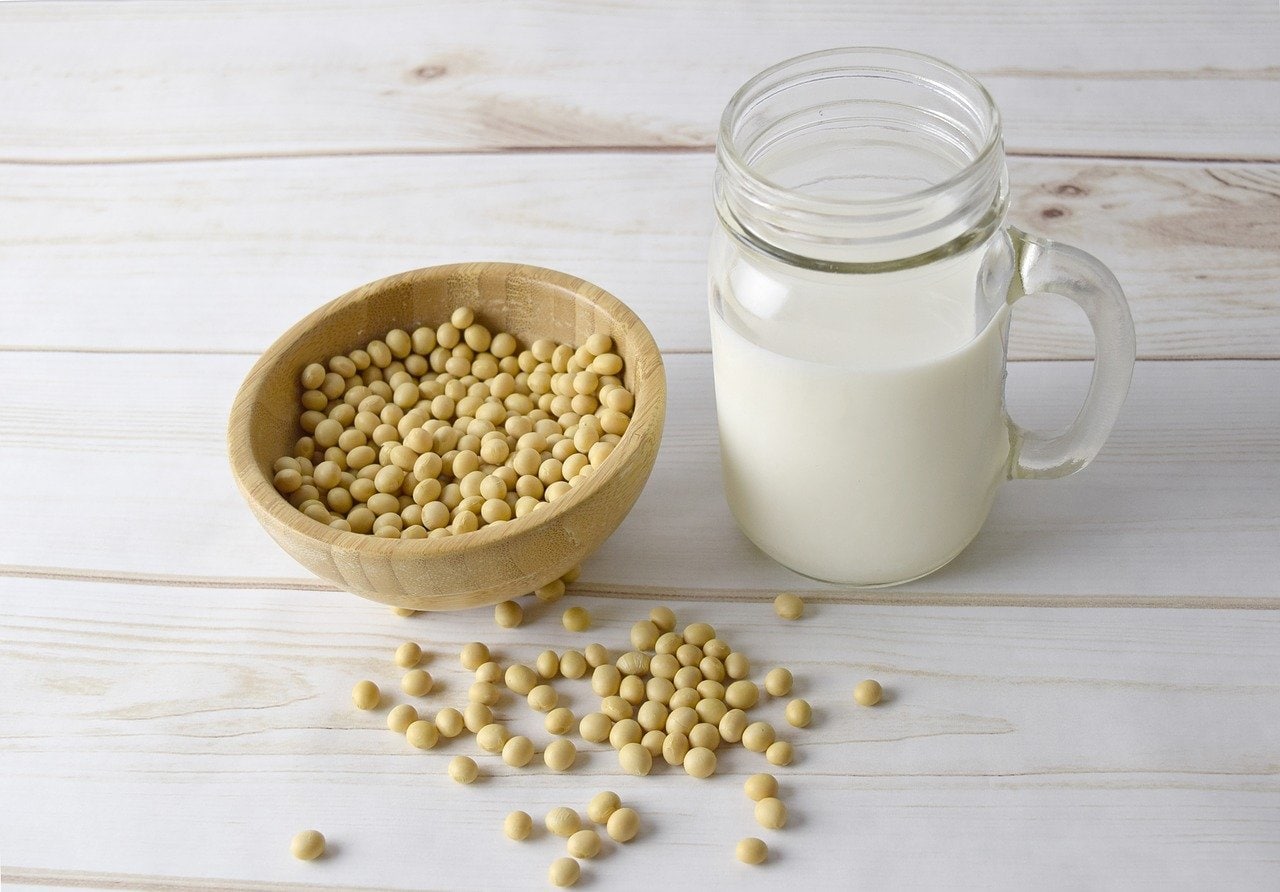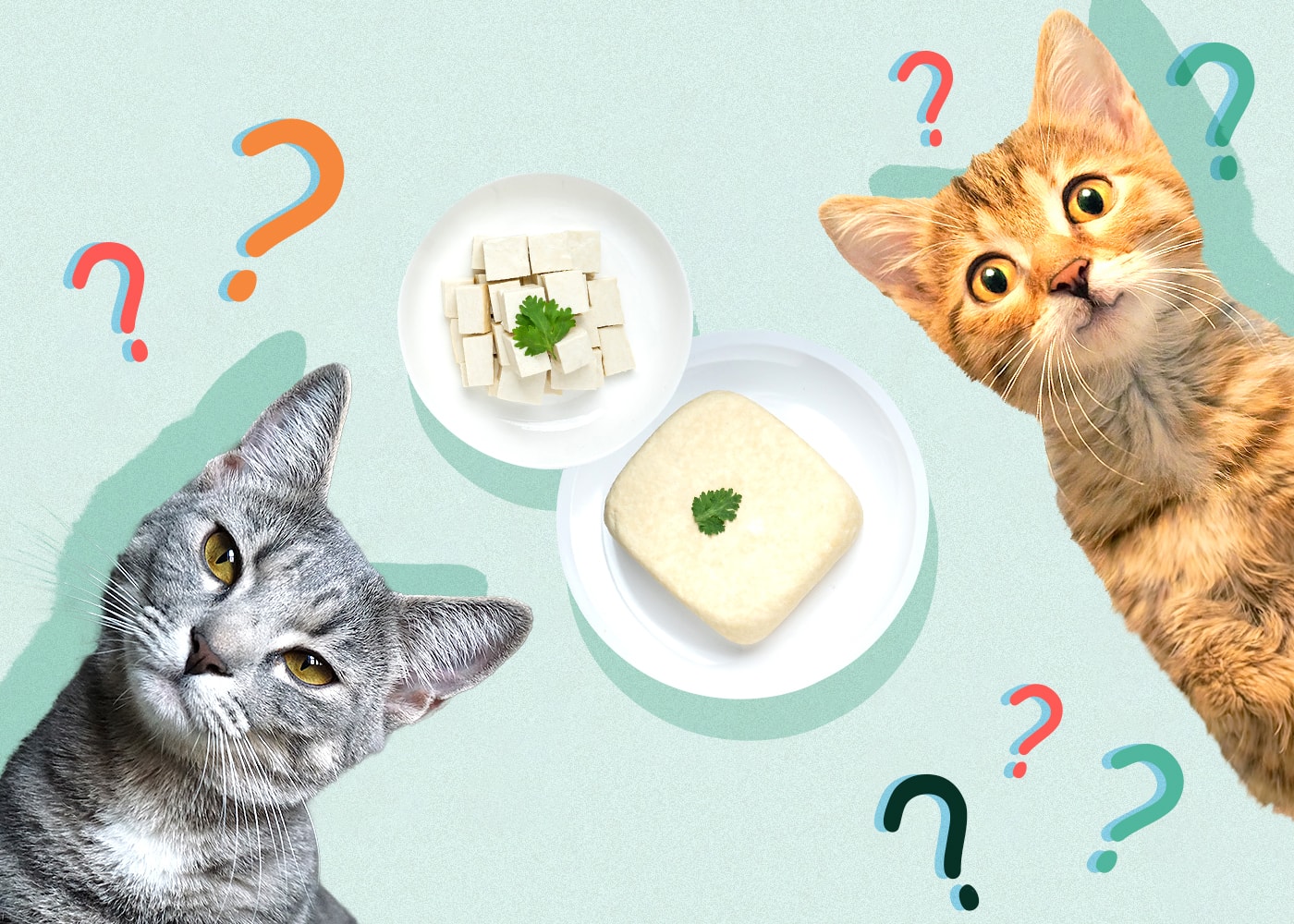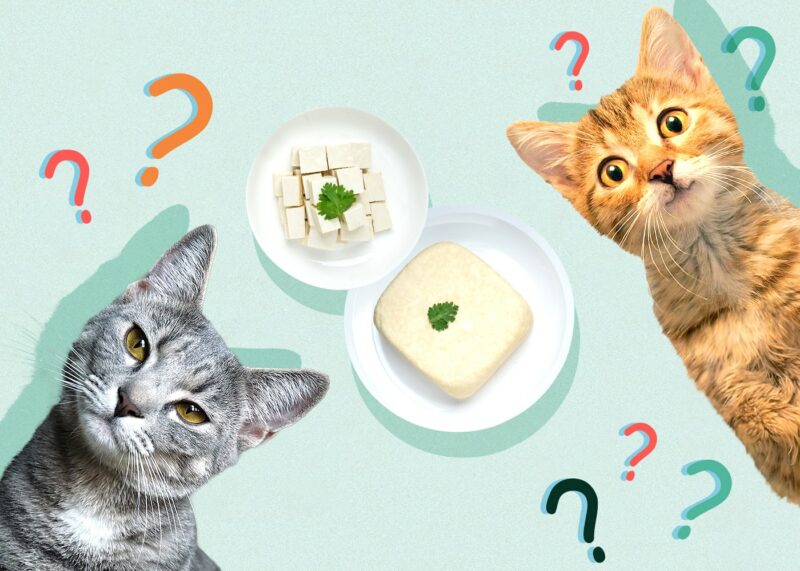Click to Skip Ahead
Tofu seems to be a favorite among humans who avoid eating meat. But what about cats, which are obligate carnivores? Can they eat tofu? Do they even like it? While tofu is not toxic to cats, it does not provide the complete amino acid profile that they need to thrive.
Cats require animal-based foods because these supply the amino acid profile of proteins that they need. Also, the complex sugars in tofu might cause them to develop diarrhea after consuming it. Let’s look closer at this unlikely pair of cats and tofu.

What Do Cats Require in Their Diet?
Cats need protein for muscle and bone-building, as well as for energy production. Micronutrients, such as zinc, calcium, and magnesium, are crucial for enzyme function. Cats should obtain all their nutritional requirements from species-appropriate foods. Cats don’t need tofu, nor will they find it in the wild, since it is a processed soy derivative. When feeding cats, remember that their staple food is meat. Since tofu is a meat alternative, felines can only feed on it in moderation because it is not a complete protein for them. It lacks the amino acids that cats need to get from their food.
Nutritional Highlights of Tofu
Tofu is a nutritious food that contains many valuable nutrients. It has at least nine amino acids, iron, calcium, phosphorus, magnesium, copper, vitamin B1, and zinc.
Tofu is mainly rich in fats and proteins, but since cats need more proteins than fats, tofu is not a recommended food source for them. Generally, tofu is healthier than cheese since it has no lactose. Unfortunately, it contains two sugars, raffinose, and stachyose, which are not easily digested. Your cat can develop signs like diarrhea, vomiting, bloating, lethargy, and loss of appetite.
Moreover, in many cases, tofu is seasoned with salt, garlic, and onions, which are toxic to cats.

Precautions When Serving Tofu to Your Cat
Cats do not need tofu, but if you must offer it, please ensure that it does not contain any onion or garlic. Remember to serve it as a very occasional treat. If you are introducing it for the first time, test it out with very small portions, and check how your cat reacts. Some cats can be intolerant to tofu. Start by giving them one to two small blocks to taste. Keep an eye on your cat, and note if they develop signs such as diarrhea, vomiting, bloating, or any other gastrointestinal issues. It is safe to serve your cat homemade tofu, since most commercially available ones are seasoned and laced with additives that may upset the cat’s stomach. However, if you trust your source, go ahead and give them some. Since it is a snack, you can serve it alongside kibble or dry food for your pet.
Do I Have to Cook Tofu Before Feeding It to My Cat?
Tofu is obtained by drying and soaking the soybeans before they are soaked or ground. The soybean is then boiled before gypsum is added to solidify the resulting liquid. After that, the mixture is sieved, and the solidified extract becomes tofu. This means that tofu is not raw, so cats can eat commercially produced tofu without it being cooked first.
Ensure that your tofu supplier is trusted with high standards of hygiene and follows food safety guidelines. If you and your pet develop diarrhea and other gastrointestinal signs, that suggests that bacteria might have contaminated the tofu.

Cats and Soy
Allergies are widespread in cats. About 10–15% of allergies in cats are caused by food, and tofu, made from soy, is no exception.
The soy proteins in tofu can cause an allergic reaction in cats; thus, you need to introduce it slowly as you monitor your pet’s response. Other foods that could cause allergic reactions include chicken, corn, fish, and wheat.
Food allergies in cats can manifest through vomiting, diarrhea, weight loss, swollen and red ears, hair loss, and itching on the back, neck, and head. According to research, soy has been demonstrated as a potential cause of goiter and hypothyroidism, affecting one in 300 cats.
Can Cats Drink Soy-Based Drinks?
Since tofu is a soy-based product, you might be tempted to give the feline some soy milk too. However, your cat should not be given any soy-based drinks. Although they have no lactose, these drinks have raffinose and stachyose, which cats can’t digest. Furthermore, these sugars can give your cat gastrointestinal problems like bloating, stomach upsets, and vomiting.
Although cats love milk, which might tempt you to introduce soy milk to your cat’s diet, it is not cat food. Both cow and soy milk are nutritionally inappropriate, and cats should not drink either of them.

Cats and Tofurky
Tofurky is made from organic tofu and wheat protein. This food should not be given to cats since it is seasoned with herbs and spices that are toxic to cats; however, if your pet snatches a piece, don’t worry. One scrap is unlikely to be fatal. However, keep the rest out of their sight.
Be Careful of Added Ingredients
Garlic, onions, scallions, and shallots are toxic to cats. If your cat ingested tofu with these ingredients, take your cat to the vet for appropriate treatment before their condition deteriorates.
Conclusion
Cats should not eat tofu more than occasionally because it is a vegetable protein that is not ideal for cats. If your kitty has already tasted and likes tofu, moderate the amount to no more than a small piece once or twice a week as a treat. Monitor your pet to ensure that they do not develop signs related to soybean intolerance. The fact that your pet likes tofu doesn’t mean you should substitute it for the main meal. Also, consider that regular consumption of soy products increases the chances of your cat developing hyperthyroidism.
Featured Image Credit: Pixabay












